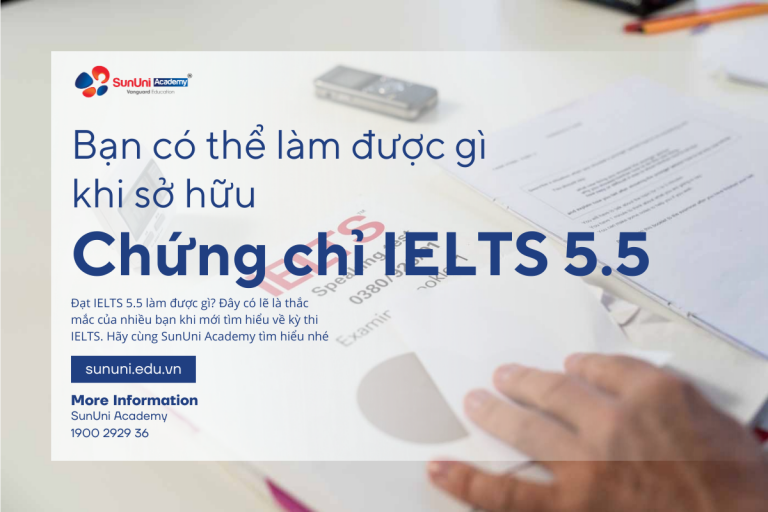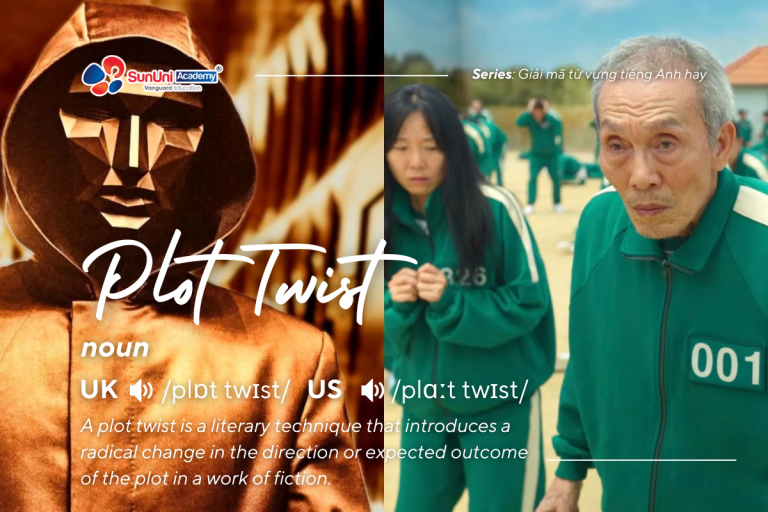IELTS Speaking Part 1, hay còn được gọi là phần “Interview”, là phần đầu tiên của bài thi IELTS Speaking. Trong phần thi này, giám khảo sẽ hỏi bạn một loạt câu hỏi về các chủ đề quen thuộc liên quan đến cuộc sống cá nhân, sở thích và kinh nghiệm sống của bạn. Format của phần thi này tương đối đơn giản: giám khảo sẽ hỏi bạn một số câu hỏi và bạn đưa ra các câu trả lời phù hợp, bao quát được các ý trong câu hỏi nhưng vẫn phải ngắn gọn, súc tích.
Phần thi này tương đối dễ và yêu cầu cũng không cao vì bạn có lẽ là người trả lời tốt nhất các câu hỏi về chính bản thân mình.
NHỮNG ĐIỀU CẦN LƯU Ý TRONG IELTS SPEAKING PART 1
- Không giống như IELTS Speaking Part 3, các câu trả lời trong phần Part 1 thường chỉ nên kéo dài 2-3 câu. Bạn không nên trả lời quá dài mà cần giữ cho câu trả lời càng ngắn gọn, càng súc tích càng tốt.
- Không nên học thuộc các cấu trúc trước để trả lời, hãy ứng biến theo tùy tình huống và câu hỏi khác nhau. Nếu bạn cố chấp làm những điều trên, giám khảo có thể hạ điểm của bạn.
- Đa số các câu hỏi trong phần Part 1 đều xoay quanh bản thân bạn và giám khảo không đánh giá quan điểm cá nhân của bạn, nên hãy tự tin trả lời dựa trên kiến thức và kinh nghiệm của bản thân mình.
- Hãy chắc chắn rằng bạn đã đọc kĩ Band descriptor và hiểu rõ các yêu cầu của phần thi trước khi đi thi.
- Bạn nên dùng idioms trong phần thi Nói, tuy nhiên chỉ nên dung các idioms phổ biến và liên quan chặt chẽ tới câu hỏi, tránh sử dụng các idioms không phổ biến và không liên quan vì giám khảo có thể sẽ không hiểu bạn đang nói gì.
- Bạn nên nói với tốc độ bình thường, giống như bạn vẫn nói tiếng Việt hằng ngày và đảm bảo rằng bạn phát âm rõ ràng, rõ các âm tiết của từng từ. Chú ý nên nhấn trọng âm và phát âm âm cuối.
- Nếu bạn không hiểu câu hỏi hay một từ nào cụ thể trong câu hỏi của giám khảo, đừng ngại hỏi lại ngay lập tức.
- Thường xuyên sử dụng ngôn ngữ cơ thể, hãy gật đầu khi bạn hiểu câu hỏi và cười trong khi trả lời câu hỏi để tăng thiện cảm với giám khảo.

CÁC DẠNG CÂU HỎI TRONG IELTS SPEAKING PART 1
Trong IELTS Speaking Part 1, có 4 dạng câu hỏi chính:
Closed-ended questions (câu hỏi đóng)
Dạng câu hỏi này thường chỉ yêu cầu bạn trả lời Yes/No. Đối với dạng câu hỏi này, bạn bị giới hạn về mặt quan điểm do bạn chỉ có thể trả lời đồng ý hoặc không.
Ví dụ: Do you like sports? => Yes, I love playing sports because I want to have a healthy lifestyle and a strapping physique./ No, I have no time for sports since I work a 9 to 5 job and attend extra classes in the evening.
Open-ended questions (câu hỏi mở)
Trái ngược với dạng câu hỏi đóng, câu hỏi mở rất “mở” và không yêu cầu bạn trả lời Yes/No nữa mà yêu cầu bạn ứng biến, thể hiện quan điểm cá nhân về một chủ đề nhất định.
Ví dụ: What do you enjoy doing in your free time? => I love reading book andspending time outdoors. I usually read science fiction on regular weekdays and go hiking on the weekend.
Follow up questions (câu hỏi phụ)
Trong IELTS Speaking Part 1, dạng câu hỏi này thường được hỏi phụ thêm sau khi bạn đã trình bày câu trả lời của mình nhằm giúp giám khảo xoáy sâu hơn vào
quan điểm của bạn về một chủ đề nhất định.
Ví dụ: Sau khi trả lời về chủ đề thời gian rảnh: “Why do you like reading science fiction?” => I think science fiction provides a fresh way of stimulating my mind by delving into imaginative worlds that filled with fantasies and possibilities. Reading this type of book also helps me improve critical thinking about the world we live in and possible events that can happen in the future.

Situational questions (câu hỏi tùy tình huống)
Dạng câu hỏi này được tạo ra để đánh giá khả năng phản ứng của bạn với các tình huống thực tế và thể hiện quan điểm của bạn về nhiều chủ đề khác nhau. Những câu hỏi này thường yêu cầu bạn phải tưởng tượng mình trong các tình huống khác nhau để giám kháo đánh giá cách bạn phản ứng hoặc trả lời.
Ví dụ: If you can change one thing about your house, what would it be? => I would consider expanding my bedroom, since it is my personal space and I spend most of my time there. I would enlarge the center of the room for more playing space and install some windows on the East side for sunlight in morning and refreshing wind in the evening.
CHIẾN LƯỢC TRẢ LỜI IELTS SPEAKING PART 1
1. Trả lời trực tiếp câu hỏi
Example: “Do you like to read books? ”
Answer 1: Yes, I love reading books. I like to read books because I find it very relaxing, and I can get a lot of information from books. My father really enjoys reading too; and every Friday night, me and him sits at home enjoying some books and drinks some tea…. => Trả lời trực tiếp
Answer 2: Well, books are really enjoyable. People like to read books because they find it very relaxing, and they can get a lot of information from books. My father really enjoys reading; and every Friday night, he sits at home with a book and drinks some tea…. => chưa đưa ra được câu trả lời, ý kiến cá nhân của mình.
2. Thể hiện khả năng tiếng Anh ( ngữ pháp, từ vựng, cách tổ chức, phát âm,..)
Chúng ta phải biết rằng IELTS là một trò chơi, và bài kiểm tra là một phương pháp có quy luật cho phép bạn được điểm và mất điểm. Vì vậy, để thành công với bất kỳ trò chơi nào và đặc biệt là IELTS, chúng ta cần nắm rõ luật chơi là gì và cần biết cách tăng điểm chứ không phải mất điểm.
Example: “Do you enjoy reading?”
Answer 1: Yes, I love to read
Answer 2: To be honest, I hate reading. I think it’s a stupid hobby. I think people that read are actually very boring and they annoy me tremendously.
Chúng ta có thể dễ dàng nhận thấy rằng Answer 2 tốt hơn Answer 1. Answer 2 có từ vựng tốt, ngữ pháp tốt, cấu trúc câu tốt. Vì vậy, answer 2 là một câu trả lời đầy đủ, rõ rang và có thể đạt được điểm cao.
Lưu ý rằng không bao giờ đưa ra câu trả lời chỉ một từ, luôn sử dụng các câu hoàn chỉnh hoặc ít nhất là các cụm từ hoàn chỉnh và mở rộng câu trả lời của bạn bằng cách cung cấp một số loại giải thích hoặc ví dụ.

3. Tránh sử dụng các từ chỉ mức độ 100% và 0% như v.v. always, never , etc.
● Example 1: “What do you do on the weekend?”
Answer : I always often go to the mall and talk to everyone
● Example 2: “What do you do on the weekend?”
Answer : I always usually do my homework.
● Example 3: “Do you like fast food?”
Answer : To be honest, it’s disgusting, I never rarely eat it.
4. Paraphrasing
Có thể sử dụng từ đồng nghĩa và cách diễn đạt song song để diễn giải câu hỏi trong câu trả lời của mình.
● Example 1:“What did you like to read as a child?”
Answer : “As a child, I like to read .”
⇨ Câu trả lời này sẽ không đạt điểm cao ở tiêu chí Lexical Resource bởi vì trong câu sử dụng lại từ ở trong câu hỏi. Thay vào đó chúng ta nên paraphrase lại:
Answer: “ When I was a kid, I love reading…”
Hoặc “back then, I enjoyed reading… ”
“Back then” trong trường hợp này nghĩa là “when I was a child”
● Example 2: “what do you do in your free time?”
Answer : “ In my leisure time/ in my spare time , I love to play games…”
Hoặc “when I am not working , I like to read books.”
5. Học kĩ các chủ đề chính
Có một số chủ đề thiết yếu cần phải chuẩn bị: những chủ đề bạn yêu thích (đồ ăn, sách, phim, chương trình truyền hình, vật dụng cá nhân, trang web, v.v.)…những người trong cuộc sống của bạn (gia đình, bạn bè, giáo viên, hàng xóm)…hoạt động (sở thích, tập thể dục, những gì bạn làm trong kỳ nghỉ, ký ức về quá khứ và kế hoạch cho tương lai), địa điểm (nơi bạn sống, nơi bạn có thể muốn sống, địa điểm tham quan, v.v.) và mọi thứ (thiết bị và tiện ích bạn sử dụng mỗi ngày, những món quà bạn đã tặng hoặc nhận, những đồ vật có giá trị và yêu quý). Học kĩ các chủ đề này giúp bạn có một sự tự tin lớn hơn khi bước vào kì thi mà không phải lo sợ khi gặp đề mình không biết.
CÂU TRẢ LỜI MẪU IELTS SPEAKING PART 1
STUDYING
1. What subjects are you studying?
I’m studying several subjects related to my major, which is Vietnamese history. I also take some general courses like English and economics. These help me understand different aspects of life, not just history.
2. Why did you choose those subjects?
I chose history because I’m quite interested in knowing more about the past, especially the history of Vietnam. I think it’s important to learn about our culture and how the country has
developed over time.
3. How long have you been studying them?
I’ve been studying these subjects for about three years now. I started when I entered university, but I’ve always liked history since high school.
4. Do you enjoy them? Why?
Yes, I enjoy them. History is interesting because it teaches me about how things were in the past and why things are the way they are now. It helps me understand my country better.
5. What is the best thing about studying?
I think the best part of studying is gaining knowledge. It’s satisfying when I learn something new, and I can apply it to understand the world around me. Plus, it gives me the chance to improve my skills and hopefully get a good job in the future.
SPORTS
1. Do you enjoy playing sports? Which?
Yes, I enjoy playing sports, especially badminton. It’s a popular sport in Vietnam, and I often play with my friends or family. It’s fun, and it helps me stay fit.
2. What sports do you like to watch on TV?
I like watching football on TV, especially when the Vietnamese national team plays. It’s exciting to see the whole country cheering for the team, and football is very popular here.
3. Which sports are popular in your country?
In Vietnam, football is definitely the most popular sport. Everyone follows it, and people love to gather in cafes or at home to watch matches. Other sports like badminton and volleyball are also quite popular.
4. Are there any sports you don’t like?
I’m not really a fan of golf. I find it a bit slow compared to other sports, and it doesn’t seem as exciting to me. I prefer more active sports like football or badminton.
5. Is it important for a child to learn a sport?
Yes, I think it’s important for children to learn sports. It helps them stay healthy, teaches teamwork, and builds discipline. Plus, playing sports can be a lot of fun and a good way to make friends.
6. Do you admire any famous athletes? Who?
Yes, I admire Nguyễn Quang Hải, one of Vietnam’s top football players. He’s very talented and has helped the national team achieve great success in recent years. His dedication and skills are really inspiring.
HOME TOWN
1. Where are you from? Where is your hometown?
I’m from Hanoi, the capital city of Vietnam. It’s a very lively and historical city with a mix of modern and traditional elements.
2. Do you like your hometown?
Yes, I like Hanoi a lot. It has a rich history and many beautiful places like Hoan Kiem Lake and the Old Quarter. I also enjoy the local food, like pho and bun cha. The city has its own unique charm, especially with the changing seasons.
3. Would you prefer to live somewhere else?
Right now, I’m happy living in Hanoi, but maybe in the future, I would like to live in a quieter place. Hanoi can be quite busy and noisy, so sometimes I think about living in a smaller town where life is more relaxed.
4. Is your hometown suitable for young people to live in?
Yes, I think Hanoi is a good place for young people. There are many opportunities for education and jobs, and a lot of things to do for fun. There are also many cafes, shopping centers, and cultural events, so young people can enjoy a vibrant lifestyle here. However, the traffic and air pollution can be a bit of a problem.

FOOD AND COOKING
1. Do you enjoy cooking?
Yes, I enjoy cooking, but I don’t do it very often because I’m usually busy. When I have time, I like to make simple Vietnamese dishes like stir-fried vegetables or pho. It’s satisfying to prepare my own meals.
2. How often do you eat at restaurants?
I eat at restaurants about once or twice a week. Sometimes it’s more convenient, especially when I don’t have time to cook. I also enjoy trying new dishes, especially when I’m with friends.
3. What is your favorite food to eat?
My favorite food is definitely pho, the famous Vietnamese noodle soup. I love the rich broth and the combination of flavors from the herbs, beef, and noodles. It’s a dish I can eat any time of the day.
4. What is a typical breakfast for you like?
A typical breakfast for me is usually something light, like banh mi or a bowl of pho. Sometimes I just have a quick meal like sticky rice or a cup of soy milk if I’m in a hurry.
5. Do you like food from other countries?
Yes, I like trying food from other countries. I especially enjoy Japanese and Korean food. Sushi, ramen, and kimchi are some of my favorites because they’re quite different from Vietnamese dishes and have unique flavors.
TRAVELLING
1. Do you enjoy travelling? Why?
Yes, I really enjoy travelling because it allows me to experience new places, cultures, and food. It’s also a great way to relax and take a break from my daily routine.
2. Where have you travelled?
I’ve travelled to several places in Vietnam, like Da Nang, Ho Chi Minh City, and Ha Long Bay. I’ve also been to Thailand and Singapore, which were amazing experiences because of the different cultures and attractions there.
3. Would you rather travel alone or with friends and family?
I prefer travelling with friends and family because it’s more fun to share the experience with people I’m close to. We can create memories together, and it’s nice to have company, especially when exploring new places.
4. What do you dislike about travelling?
One thing I don’t like about travelling is the long waits at airports or train stations. It can be tiring and boring, especially if there are delays. I also don’t enjoy the packing and unpacking part of travelling.
5. Do you prefer using a train or plane when you travel? Why?
I prefer using a plane because it’s faster and more convenient, especially for long-distance travel. Trains can be nice for shorter trips, but they usually take much longer and are less comfortable.
6. Do people in your country enjoy travelling? Where do they usually go?
Yes, people in Vietnam love to travel, especially during holidays. Many people visit popular destinations like Da Nang, Nha Trang, and Ha Long Bay. Some also enjoy travelling abroad to nearby countries like Thailand or South Korea.
MUSIC
1. Do you like music?
Yes, I love music. It’s a big part of my life and helps me relax, focus, or lift my mood depending on the situation.
2. What kind of music do you like?
I enjoy a variety of music, but my favorite genres are pop and acoustic. I also like traditional Vietnamese music because it has a unique sound that reflects our culture.
3. When do you usually listen to music?
I usually listen to music when I’m studying or commuting. It helps me concentrate or pass the time. I also like listening to music before bed to unwind after a long day.
4. What kind of music did you like when you were younger? What kind of music is popular in your country?
When I was younger, I used to like pop songs, especially the ones that were popular on the radio. In Vietnam, a lot of people still enjoy pop music, but V-pop and ballads are very popular as well. Many people also like K-pop because of its catchy tunes and vibrant style.
5. Do you play any musical instruments?
Yes, I can play the guitar. I learned it a few years ago, and I like playing it in my free time. It’s a great way to express myself and relax.
Tài liệu do đội ngũ Hội đồng chuyên môn SunUni Academy biên soạn. Vui lòng không sao chép dưới mọi hình thức.
Tham khảo thêm:


![[CẬP NHẬT 2024] REVIEW THI IELTS TRÊN MÁY TÍNH TẠI IDP](https://sununi.edu.vn/wp-content/uploads/2024/05/THUONG-Thumb-website-SunUni-Academy-vv-768x512.png)

